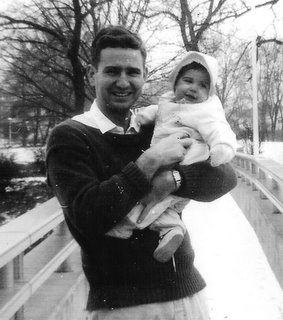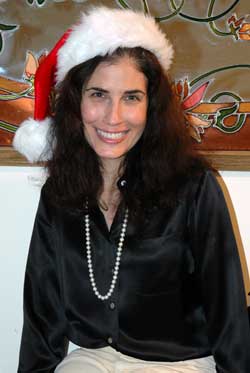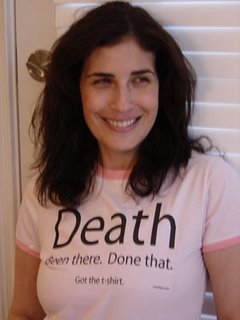
Thanks to everyone who commented on my previous post,
Family Ties. It seems that post struck a nerve with many people, as family relationships often do. I certainly do not mean to seem pollyannish about hoping that relatives can get along. It's just that I have seen the damage that can happen to people over time if they do not. Many of my young patients have grown up without fathers, have had mothers who are abusive or neglectful and extended family who see them as trouble. They often are, of course, but there is a loss you can see in a youth's eyes when his family has fallen apart. It is not an excuse to do damage or harm others, but family discord can set the stage for a life time of pain and depression.
I learned a lot about forgiveness from my father. I was very lucky to have a great dad, although he had his share of problems in life. Besides being saddled with five kids, he fought schizophrenia since the age of eighteen. That year, he lost his memory and ended up riding a subway car from one end of the Bronx to Brooklyn. The story I heard from family is that my grandfather was called and found him on the subway; my dad spent the next year of his life in a mental hospital receiving electroshock therapy. Despite his problems, my father went on to graduate from NYU and then the University of California at Berkeley with a PHD in mathematics. He was, and still is, my inspiration.
Sometimes, during the years I was in my teens and twenties, we lost touch and I felt very far away from him. He had remarried after my parents divorced and had another five kids to support with his new wife. Needless to say, he was very preoccupied, as was I while in graduate school. He visited me once in New York and I still have a lovely picture of us together. But at that point in my life, I felt isolated and alone. I felt at that time that I had no support from family at all when I needed it the most. But loneliness and sorrow have a way of changing over time. I realized that I had made the decision to move to New York and when I got the chance to finish my PhD. in Tennessee where my family lived, I took it. It was the best decision I ever made.
In addition to hooking back up with my later-to-be husband, I had the luxury of time with my father after I moved back. For the last six years of his life, he watched my daughter and talked with me endlessly every Sunday about the goings on of his life. By this time, he and his second wife had been divorced. In our Sunday Brunch conversations, he taught me about relationships, mathematics and forgiveness. We would sometimes chat about other family members and I would comment to him why I felt upset with one or another of them. My father never became ruffled about his family and had what seemed to me an endless supply of love for us. If someone in the family had hurt him in some way, he would often shrug and say, that is how he or she is, that's just her/him. I could tell he loved each of his kids unconditionally, while overlooking all of our flaws--and I know we had some!
In the end, this is all I remember about my father--his love for us despite the differences and the pain we might have caused him. A bit over four years ago he was diagnosed with a rare form of duodenal cancer. He had never been physically sick a day of his life so it was quite a shock to me. He died three weeks to the day of being diagnosed at 68. I remember the day before he died--my family and I sat with him in his apartment and he was sitting up reading the very last book he would ever read--it dropped from his fingers onto the floor and after he went to lay back down, I picked it up. My father died the next night and I carefully picked up some pictures and the book he had been holding before he died:
A First Course in Stochastic Processes. It sits on my shelf as I write this as a reminder that despite our differences, that the only thing I remember most clearly about my father is how he loved me despite my flaws. I am very lucky.
This beautiful poem by Charles Black, who was my husband's law professor at Yale, captures for me the essence of my father's life and the love that, despite imperfection, is there in abundance:
It is called "Letting Go," from his book
The Waking Passenger.
In the process of letting go the breath
Moment for relieving your eyes' ache,
You see bark patterns, a child's hand
Catching and throwing, next to the tree.
You have to relive all your days
To receive the gift of surprise
At words you didn't quite hear, once riding.
Do what you can; everything will come
In memory if never in experience.
Revisit, retell. Love sounds deeper
Out of time than in time. Act love imperfectly;
You will remember love itself.







